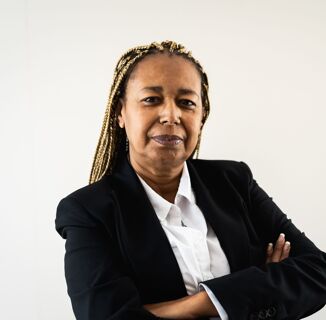Amid threats of violence against LGBTQ tourists attending the 2018 World Cup in Russia, a local advocacy group has set up an emergency hotline to keep visitors safe.
Coming Out, an advocacy group based in St. Petersburg, will be operating the service throughout the championship games—between the dates of June 14 and July 15. Queer and trans travelers who have been attacked, threatened with violence, refused services because of their identity, accused of violating Russia’s anti-gay propaganda laws, or arrested can call and receive aid from a lawyer or psychologist.
Although representatives with Coming Out may not be immediately available, someone from the organization will call back “within a day,” the LGBTQ group claimed in a press release.
“You will be contacted by a lawyer who will assess the situation, and consult you on the best course of action,” Coming Out said in a statement, adding that advocates (whether in Russian or English) are available to “prepare an appeal to the consulate, draw up the necessary documents, and, if necessary, represent you in court.”
“In urgent cases, the lawyer will call you immediately,” the organization continued.
LGBTQ people in need of the service are instructed to either call or text +7 (953) 170 97 71 on WhatsApp. They may also email [email protected].
Although Coming Out noted that organizations like FIFA and the International Olympic Committee (IOC) have nondiscrimination laws forbidding anti-LGBTQ bias on the part of host cities, local soccer fans “do not always adhere to it.” FC Zenit, a soccer club in St. Petersburg, was fined $60,000 in April 2018 following two incidents where fans chanted racial epithets at matches.
Coming Out said the “situation is worsened” by Russia’s anti-gay propaganda law, which was unanimously passed by the State Duma in 2013. The law forbids the spread of information on “nontraditional sexual relationships” to minors and has led to a twofold increase in hate crimes since its passage.
“For the Russian Federation citizens, this law entails an administrative liability and a fine of up to 100,000 rubles (about $1,600),” the group claimed.
“Foreigners, in addition to a fine or administrative arrest, are liable for deportation from the Russian Federation,” Coming Out added. “Since in the five years of the law’s existence, law enforcement agencies have not developed a clear understanding of what ‘propaganda of nontraditional sexual relations’ means, the law can be applied arbitrarily.”
The hotline’s announcement follows weeks of advisories cautioning LGBTQ foreigners to be on guard during the 21st FIFA World Cup.
Earlier this month, the U.K. Foreign Affairs Committee claimed queer and trans individuals face “significant risk” of violence from “hooligans.” The “heightened risks” include not only “the risk of violence from vigilante groups,” but also a “lack [of] adequate protection from the state.”
An earlier report from the U.K. Foreign Office came to a similar conclusion, saying the Russian government had been “taking little action to combat homophobia” in the country.
The lack of retribution for the more than 100 gay and bisexual men reportedly detained, beaten, and murdered in Chechnya certainly inspires little confidence. Since strongman Ramzan Kadyrov began a campaign to purge the the semi-independent Russian province of LGBTQ people last year, at least four people—including a well-known pop singer—are believed to have been killed.
Russian President Vladimir Putin has repeatedly said there’s no evidence to substantiate the reports, dismissing them as “provocation.”
Despite reassurances from the World Cup organizing committee (which is run by officials in the Russian government) that LGBTQ fans can “expect a warm welcome” in the country, sporting groups have received numerous threats in the weeks leading up to the games.
Pride in Football, an alliance of LGBTQ fan groups, recieved emails depicting a “man threateningly wielding a knife,” as CNN reported. Trolls have warned the group that if they find its members, they will stab them.
Others opposed to LGBTQ rights said they would let the authorities handle the situation.
“If two men are kissing each other at the World Cup, we will tip off the police, drawing their attention to it and the rest is a police matter,” said Cossack volunteer coordinator Oleg Barannikov, whose team will be in charge of security at one of the soccer venues. “To us, values mean the Orthodox faith and the family come first.”
A recent poll found that 39 percent of Russians claim it’s “likely or highly likely” that LGBTQ travelers will be harassed or attacked during the World Cup.
In addition to the hotline, other groups are offering resources to help shield queer and trans people from violence during the quadrennial tournament. The antidiscrimination group FARE released a guide advising “gay people to be cautious in any place which is not seen to be welcoming,” while a local advocacy group set up “Pride Houses” to offer safe spaces for LGBTQ travelers.
Queer and trans soccer fans will also reportedly be permitted to hoist Pride flags at World Cup events.
Help make sure LGBTQ+ stories are being told...
We can't rely on mainstream media to tell our stories. That's why we don't lock our articles behind a paywall. Will you support our mission with a contribution today?
Cancel anytime · Proudly LGBTQ+ owned and operated
Read More in Impact
The Latest on INTO
Subscribe to get a twice-weekly dose of queer news, updates, and insights from the INTO team.
in Your Inbox












